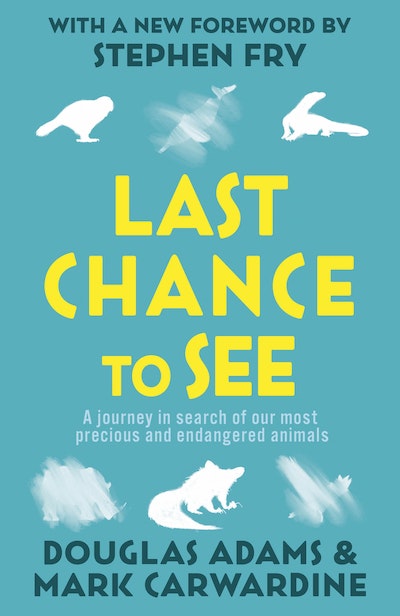- Published: 1 December 2009
- ISBN: 9780099536796
- Imprint: Arrow
- Format: Paperback
- Pages: 256
- RRP: $32.99
Last Chance To See
- Published: 1 December 2009
- ISBN: 9780099536796
- Imprint: Arrow
- Format: Paperback
- Pages: 256
- RRP: $32.99
This is life or death stuff, but Adams is a writer who chooses not to shake his finger at the reader. He fails completely in the self-righteous-piety department. Instead he invites us to enter a conspiracy of laughter and caring
Los Angeles Times
It is a book one reads in a rush, always looking forward to the next perverse paragraph, wise insight or felicitous phrase
The Canberra Times
Last Chance to See brings out the best in Adams' writing ... constantly springing on the reader the kind of dizzying shift in perspective that was the stock in trade of Hitchhiker'
The Listener
The funniest serious book on the market.
Amazon.co.uk reader review
If the measure of a book's worth is the strength of the urge to 'get out and do something' that it gives you, then LAST CHANCE... is way up there with the best of them.
Amazon.co.uk reader review
In every case, the presence and personality of the endangered animals rise off the page - even when the authors don't manage to find them. The writing may be witty, but this book is a sobering reminder of what a very great deal we have to lose
Independent on Sunday
Who would have thought that a book in the field of "ecology/nature" ... could be as lively, sharply satirical, brilliantly written and even funny as this one? ... ranks with the best set pieces in Mark Twain
Atlantic Monthly
Descriptive writing of a high order ... this is an extremely intelligent book
The Times



